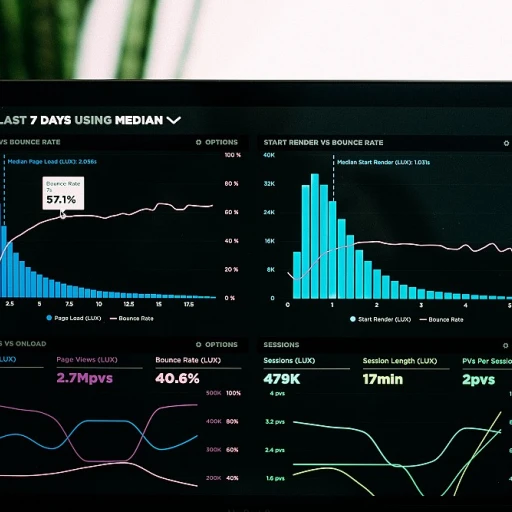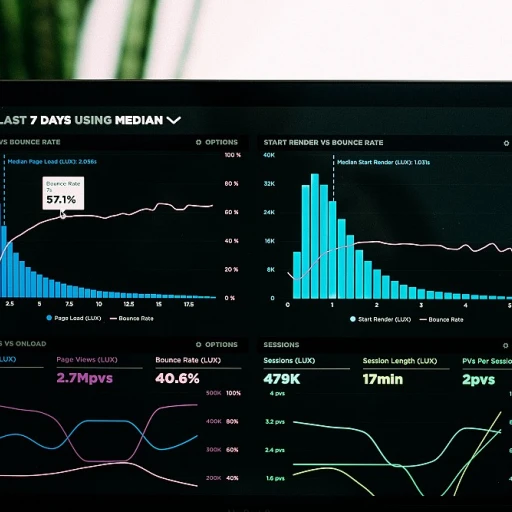AI's Role in Modern SEO
The Transformative Power of AI in SEO
Artificial intelligence has become an integral part of modern search engine optimization, revolutionizing how businesses improve their search rankings. The rapid advancement in AI technologies allows for unprecedented enhancement of search strategies, ensuring that websites are optimized for better visibility and reach.
AI possesses the capability to analyze vast amounts of data, identifying trends and patterns that would otherwise go unnoticed. By leveraging AI, businesses can automate many aspects of SEO, saving time and resources while also increasing accuracy. This automation extends to critical areas such as keyword research, competitor analysis, and website performance monitoring.
In addition, AI-powered tools can offer personalized recommendations and insights for SEO strategies, helping marketers make informed decisions. These tools can analyze website architecture, backlinks, and social signals, providing a comprehensive view that enables improved search ranking strategies.
The role of AI doesn't end there; it extends to real-time adjustments and campaign optimizations. With machine learning algorithms, AI systems continuously learn from new data, adapting SEO efforts to align with the ever-changing algorithms of search engines like Google.
By integrating AI into your SEO practices, you can stay ahead in the competitive digital landscape. To explore more on how AI contributes to an enriched content strategy, check
this article. This will further illuminate how AI efficiently shapes modern SEO for heightened search rankings.
Content Creation and Optimization
Embracing AI-Enhanced Content Strategies
In the quest to elevate search engine rankings, content remains king. Yet, the manner in which this content is crafted, optimized, and delivered is undergoing a radical transformation thanks to artificial intelligence. By harnessing AI technologies, businesses can generate content not only rapidly but with remarkable precision and relevance.
AI algorithms now analyze vast datasets to discern trending topics, consumer preferences, and even competitors' strategies. This data-driven approach allows content creators to pinpoint keywords and themes that resonate strongly with their target audiences, yielding richer engagement and higher rankings. Moreover, AI tools facilitate the tailoring of content to specific audience segments, an essential component for websites targeting diverse demographics or languages.
Beyond content creation, AI promotes refined optimization techniques, such as semantic optimization and natural language processing. By understanding the intent behind various queries, websites can ensure their pages align more closely with users' search expectations, thus enhancing visibility on search engine results pages (SERPs).
For those interested in expanding their reach across different languages and regions, leveraging AI for content translation and adaptation proves indispensable.
This approach ensures consistent messaging across borders while maintaining the technical finesse required for improved rankings. Efforts to expedite the translation process with AI-driven solutions further bolster multilingual SEO strategies, capturing a broader audience without compromising the quality of user experience.
In tandem with AI's role in user experience optimization and integrated SEO tools, AI-enhanced content strategies are instrumental in solidifying an authoritative online presence. It paves the way for a more connected, targeted, and user-centric SEO framework, setting the stage for unprecedented growth in search rankings.
Understanding User Experience
Delving into User Intent and Experience
In the realm of search engine optimization, understanding user experience is pivotal to enhancing search rankings. Artificial intelligence plays a crucial role in deciphering user intent, enabling SEO specialists to tailor content that resonates with the audience's needs and preferences. This personalized approach leads to increased user engagement and satisfaction, factors that are instrumental in boosting rankings on search engine result pages.
One of the central methods AI employs to enhance user experience is through the analysis of user behavior on websites. By examining patterns such as time spent on pages, bounce rates, and navigation paths, AI tools can provide valuable insights into the elements of your website that captivate users or, conversely, those that might drive them away. Armed with this information, businesses can make data-driven adjustments to improve the overall user journey.
Another component to consider is how AI aids in understanding and optimizing for different stages of the buyer's journey. By identifying where users are in their decision-making process, content can be crafted to address specific intents—whether it's informational, navigational, or transactional. This not only enhances user satisfaction but also encourages conversions.
To gain a deeper grasp of the evolving understanding of user experience, it's enlightening to explore how the latest Google updates influence search algorithms. These insights can guide strategic adjustments to align with user expectations and algorithmic priorities.
Uncovering the Potential of AI-Driven SEO Tools
Artificial intelligence has ushered in a transformative era for search engine optimization, bringing with it a suite of sophisticated tools and analytics that aid in enhancing your website's search rankings. As AI technology continues to evolve, it becomes increasingly crucial to integrate these tools into your SEO strategies.
Understanding user experience and content optimization lays the groundwork for successful SEO; however, leveraging AI-powered tools can significantly streamline workflows and improve results. These tools can automate routine tasks such as keyword research, competition analysis, and identifying technical SEO issues, allowing SEO professionals to focus on more strategic initiatives.
Moreover, AI-driven analytics platforms not only provide detailed insights into website performance but also help in predicting future trends. By analyzing large datasets, AI can identify patterns and opportunities that may be missed by traditional methods. This predictive capability allows SEO teams to adapt quickly to changing algorithms and user preferences, ensuring that their strategies remain competitive.
Adopting AI in your SEO practice involves a learning curve, but the rewards are ample. With the continuous advancements in AI technology, the integration of such tools offers a substantial advantage in optimizing digital content and achieving higher rankings.
By combining these cutting-edge tools with tried-and-true SEO practices discussed earlier in this series, businesses can harness the full potential of AI, paving the way for a more agile and effective SEO strategy.
Embracing Voice Search and Social Media Synergy
Incorporating voice search into your SEO strategy has become more crucial than ever, as voice-activated devices continue to grow in popularity. Users are increasingly relying on devices like Amazon Alexa, Google Assistant, and Apple Siri to find information hands-free. This trend shifts the search landscape, demanding a new approach to optimize content effectively.
Voice search changes the way people interact with search engines. Instead of typing short keywords, users often ask full questions. To cater to this behavior, focus on creating conversational content and incorporating natural language processing within your SEO strategy. Prioritize long-tail keywords and phrase your content as answers to potential user queries. This approach not only improves your visibility in voice search results but also enhances your overall SEO performance.
Social media platforms are another powerful tool to amplify your SEO efforts. With the sheer volume of content shared across these networks daily, leveraging social media can significantly enhance your SEO strategy. Search engines now regard social signals, such as likes, shares, and comments, as indicators of content quality and relevance. Therefore, actively engaging with your audience on social media can boost your visibility and credibility.
To maximize the synergy between social media and voice search optimization, ensure your brand's presence on platforms that align with your target audience. Create shareable and engaging content that encourages interactions. Regular engagement on social media can increase your chances of being discovered through voice searches, as high engagement rates often lead to more search visibility.
Ultimately, merging voice search optimization with a robust social media strategy can lead to improved search rankings by capitalizing on emerging trends and user behaviors. By addressing these elements, your SEO strategy remains agile and adaptive to the ever-evolving digital landscape.
Real-Life Success Stories
Unleashing the Power of AI in Real-Life SEO Successes
Incorporating artificial intelligence into your SEO strategy does not just belong to the realm of theory; it spans a tapestry of noteworthy real-world applications. As businesses increasingly integrate AI-driven tools, we're witnessing significant transformations that amplify their online visibility and ranking effectiveness.
Consider an online retailer who implemented AI-powered content strategies. The use of AI allowed them to swiftly optimize product descriptions and blog content with precisely targeted keywords. This approach enhanced relevance and ensured that their content aligned with search engine algorithms, leading to a substantial increase in organic traffic. Such a strategy resonates with the practices discussed in using AI for content creation and optimization.
Similarly, one service-based company enhanced user experience by leveraging AI analytics. By understanding user behavior and preferences, they tailored their website's navigation and content presentation. Remarkably, this personalization resulted in prolonged site visits and decreased bounce rates, reflecting the advantages of understanding user experience through AI.
Large corporations aren't the only entities that benefit. A small local business optimized its voice search capability and integrated social media interactions through AI solutions. The result was a noticeable uptick in engagement and local search queries, demonstrating how AI can refine SEO strategies for enterprises of all scales.
As we observe these successes unravel, it is evident that AI is not merely an accessory but a transformative force, stirring up the existing SEO landscape. Incorporating AI empowers businesses to adapt quickly, refine strategies, and significantly improve their search engine rankings. These real-time applications serve as testament to the future potential that AI holds for any SEO strategy. As you explore AI's role, consider how it can redefine your approach, from technical SEO adjustments to crafting the high-quality content that truly speaks to your audience's needs.













